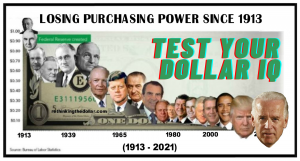
In a world rapidly evolving politically and economically, the United States finds itself at a pivotal juncture. Its once unchallenged global dominance is giving way to a more multipolar world, where economic strategies, foreign policy, and international alliances are all in flux. This blog post delves into the causes and consequences of America’s shifting role on the world stage, the challenge to the dollar’s dominance via currency diversification and gold, and how the nation responds to economic shifts characterized by inflation, currency devaluation, and strategic alignments. This comprehensive exploration not only sheds light on the changing dynamics but also offers a window into the future implications for global power structures and economic trends.
The US’s Retreat from Global Dominance: Causes and Consequences
At the heart of the changing global landscape is the United States’ reevaluation of its international posture. Withdrawing from its previous strategy of exerting will and promoting capitalism worldwide, America’s more isolationist stance has paved the way for regional powers like Russia to assert themselves, as seen in Ukraine, and for increased instability in the Middle East. These changes stem not only from a rethinking of military and economic engagements but also from the country’s internal divisions and changing public sentiment towards governance. The ripple effects of these strategic shifts are reshaping global order, trade routes, and international relations.
Challenging the Dollar: The Move Towards Currency Diversification and Gold
Another significant aspect of the shifting global dynamics is the challenge to the US dollar’s hegemony. The Breton Woods system, which established the dollar as the world’s primary reserve currency, is facing unprecedented challenges. Nations are diversifying their currency holdings, turning increasingly to assets like gold, reflecting concerns over the dollar’s future stability. This movement away from the dollar reflects broader concerns about global trade, investment patterns, and the search for safe-haven assets amidst economic uncertainties. The rising gold prices, spurred by increased central bank holdings, especially in China, signify a reevaluation of gold as a reliable asset in a tumultuous economic landscape.
Responding to Economic Shifts: Inflation, Currency Devaluation, and Strategic Alignments
The United States is navigating a complex economic environment marked by inflation, currency devaluation, and the need for strategic alignments. High inflation rates are impacting economic decisions, from infrastructure investments to policies aimed at attracting skilled labor and intellectual capital. This economic environment has reiterated the importance of gold and other hard assets as hedges against inflation. Moreover, the devaluation of the Japanese Yen against the dollar showcases the varied responses of economies to similar pressures. Japan’s situation—shaped by economic evolution, demographic challenges, and security concerns—highlights the nuanced strategies nations are adopting in response to both regional security threats and broader economic dynamics.
In conclusion, as the United States navigates this period of transition, its choices will resonate globally, affecting everything from economic trends to geopolitical alignments. Understanding these shifts is crucial for anyone looking to grasp the current and future state of international affairs.








0 Comments